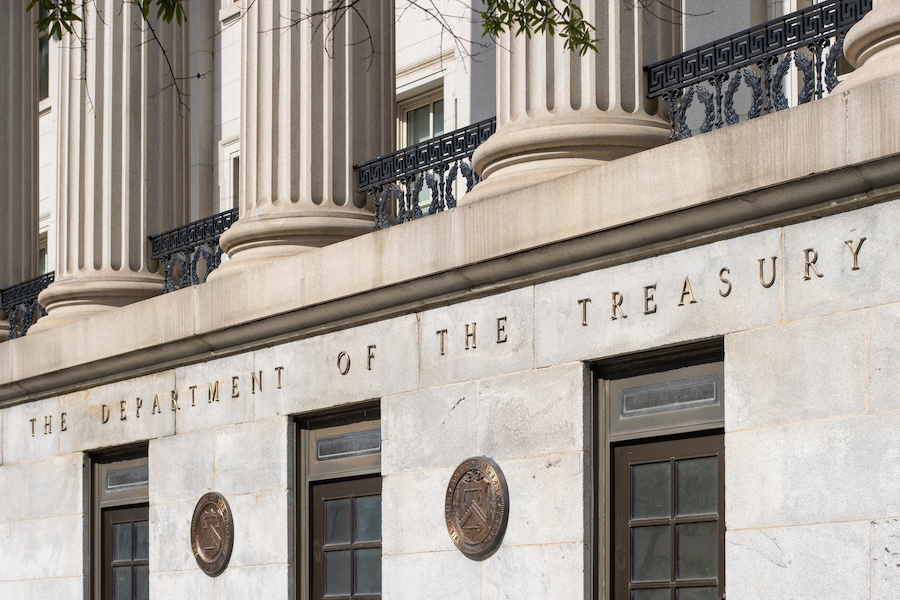Sponsored
NEW: IRS Under Fire For Targeting Conservatives

A decade after the IRS admitted to unfairly scrutinizing conservative groups during the Tea Party movement, many assumed that chapter was closed. But according to some, the same tactics are still being used, and they have evolved into something more organized, more protected, and more damaging.
The charge is simple: the IRS is being used to financially hobble conservative donors, groups, and causes, while shielding the political machinery that fuels the Democratic Party. Conservatives estimate that right-leaning individuals and organizations are losing from $1 to $3 billion annually due to audits, enforcement actions, and bureaucratic roadblocks that disproportionately target their side of the aisle. These aren’t abstract complaints—they point to specific personnel, financial trails, and patterns of behavior.
Holly Paz and Robert Choi, both previously linked to the IRS’s past scandals, remain in senior positions. Despite the fallout from their earlier roles, they’ve stayed in place and continue directing enforcement that disproportionately affects conservatives. But they’re not alone. Several high-ranking IRS officials have a long record of political activity—almost exclusively in support of Democrats.
Fumi Tamaki, now Chief of Taxpayer Experience, donated to Virginia Democrat Dan Helmer in 2017. Bridget Roberts, overseeing the agency’s direct file system, has been a registered Democrat since 2010 and contributed to Joe Biden and Kamala Harris in both the 2020 and 2024 cycles. Rajiv Uppal, the agency’s Chief Information Officer, made 48 separate donations to Democratic committees since 2016. Chief Data and Analytics Officer Reza Rashidi has donated 59 times to Democrats since 2010. Holly Paz, still a key figure, gave $4,000 to Barack Obama’s campaign.
Remember when the IRS targeted conservative NGOs during the Tea Party era?
Guess what – Those political thug actions are still happening
The IRS is just a little sneakier these days, but it’s estimated they’re draining conservatives of $1-3 billion every year with targeted… https://t.co/Fm2YUOQER0
— DC_Draino (@DC_Draino) May 6, 2025
The very people in charge of enforcement and taxpayer oversight are overwhelmingly aligned with one political ideology—and that ideology is not neutral. This imbalance creates a quiet weaponization of the IRS. While agencies like the DOJ or FBI draw public headlines and televised hearings, the IRS can operate behind the scenes—crippling opponents not through indictments, but audits, document requests, and drawn-out disputes.
Meanwhile, ActBlue—the Democratic Party’s dominant fundraising platform—moves billions with little interference. Conservative organizations, on the other hand, often report delays in approvals, sudden investigations, or unexpected legal costs that cripple their operations. The chilling effect is real: donors pull back, activist groups shrink, and political organizing slows to a crawl.
This slow bleed has far-reaching consequences. Every dollar lost to IRS pressure is a dollar not spent on ads, outreach, or campaigns. Every stalled non-profit weakens the ground game ahead of elections. Critics argue this is the goal.
Insiders warn that this embedded resistance at the IRS could obstruct President Trump’s agenda. Key tax and economic reforms could be stalled. Budget implementations could be delayed. Enforcement discretion could be used to blunt the impact of conservative policies. And by the time the midterms arrive in 2026, Democrats may be positioned to reclaim power and either block Trump’s initiatives or attempt to remove him altogether.
Many on the right see the agency’s weaponization as the central fight. The IRS, more than any other agency, holds the power to quietly tilt the political scales. If it isn’t addressed and restructured immediately, conservatives argue the rest of the agenda could be dead on arrival.

